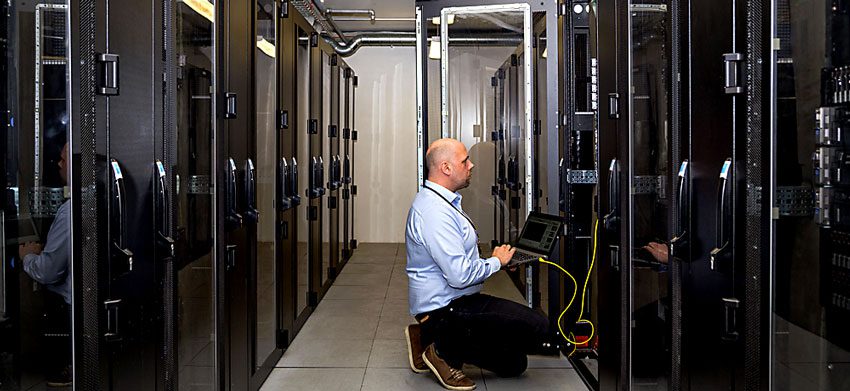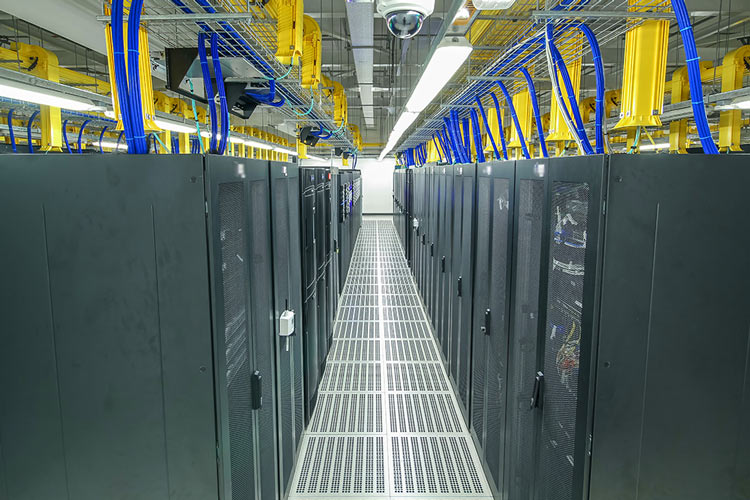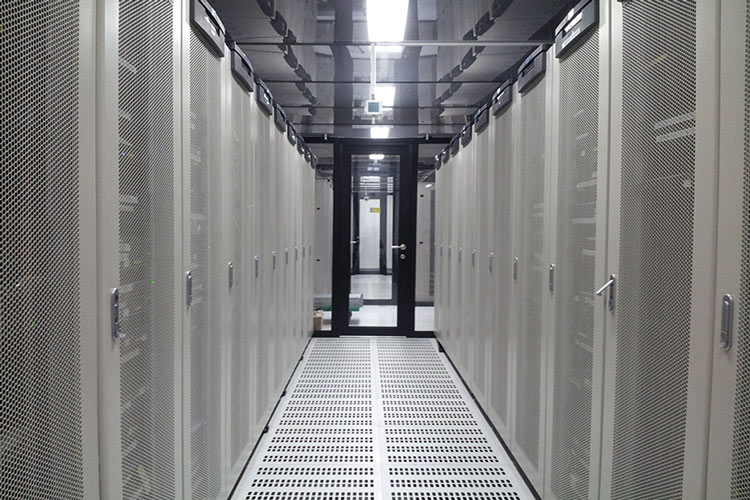Space is just one element in the equation when it comes to the spectrum of solutions and offers colocation data centers provide today. A wide variety of colocation managed services are also made available by some of these facilities, completing the colocation offer with something more. These services can assist customers with taking care of nearly all aspects of their workloads at one or more locations.
Some colocations stick to a more classic approach and hold back from the responsibilities of offering other services on top of their base offers. However, others do and have good reasons to take this path.
So, which is best? Colocation with or without managed services?
This article is going to dig into the subject of colocation vs. colocation managed services to understand the differences between the two and help you decide which one suits you best.
What are Managed Services?
Before diving into the implications of colocation, let’s talk a little bit about managed services on the whole. The term can mean a lot of different things, which can be confusing. In order to make an informed decision, it is important to learn the subtleties and differences.
In a more general sense, managed services are IT services offered as a package for clients who choose dedicated plans. They are offered by managed service providers, or MSPs, which are typically third-party companies that manage the clients’ IT infrastructures and end-user systems remotely. MSPs can offer network management and security services, as well as support and monitoring.
What do Managed Services Include?
Typically, those cater to all the technical aspects of running and maintaining IT infrastructures.
- Setting up servers
- Installing the operating system
- Migrating data
- Installing necessary software
In addition, the provider ensures regular server maintenance and security systems are in place. Managed security services involve routine virus scans to protect your server from threats. Some MSPs can offer specialized support for specific industries like healthcare and financial services, offering compliance. Specialized security services, data storage, or managed firewalls can also be part of an offer.
Managed services serve one core purpose: to relieve organizations of the burden of handling IT infrastructures. This can be beneficial for those who don’t have an in-house IT team or the resources to train their staff to plan and efficiently handle IT deployments.
It’s important to note, though, that not all managed service providers offer this kind of benefit. As stated earlier, managed services can mean different things, leading to confusion. As an example, sometimes those encompass only IT support services – without actually putting it into action for the customer.

Benefits of Managed Services
Choosing to accept the help of the provider can be a transformative move for your business, offering several benefits, including:
Increased Operational Efficiency
With managed services, your organization can save time and resources on server management. That way, your team can focus on core business operations, increasing productivity and efficiency.
Your provider handles everything from routine maintenance to troubleshooting complex server issues, ensuring smooth and uninterrupted business operations.
Enhanced Security and Compliance
Managed services often offer enhanced security measures, including regular updates, patches, virus scanning, spam filtering, and security audits.
Not only does this safeguard your sensitive information, but it also ensures compliance with various data protection regulations.
Scalability and Flexibility
Managed hosting offers a high degree of scalability and flexibility.
As your business grows, you can easily adjust your server resources to meet the increasing demand without disruption.
The hosting provider can quickly allocate more resources, such as bandwidth, storage, or computing power, as required, helping your business adapt and grow seamlessly.
Cost Efficiency
The monthly subscription fees may seem hefty. But, when you consider the cost of hiring, training, and retaining an IT team, along with the costs associated with downtime and data breaches, choosing managed services can be a more economical choice in the long run, ending up cheaper than maintaining an in-house IT team for server management.
Managed Colocation Services
Given the confusion that surrounds the term “managed services”, it’s easy to see why it’s important to have our terms defined – as much as it’s possible with all the subtle differences they encompass. So, before we talk about colocation with or without managed services, let’s take a moment to define colocation.
Colocation is a data center service where a business rents space for servers and other computing hardware. Instead of storing servers in an on-premise data center, the organization chooses to ‘co-locate’ its equipment by renting space in a colocation facility.
The colocation provider offers the building, cooling, power, bandwidth, and physical security, while the customer provides servers and storage. That way, the client can leverage expansive IT infrastructure without the capital expenditure and the difficulties of managing such a setup.
Colocation is great for businesses that must keep their servers up and running 24/7, as most providers offer backup power solutions and redundant internet connections. Colocation is an excellent option for businesses that want the features of a large IT department without incurring high costs.
Benefits of Colocation
The main advantages of colocation include:
Affordable Bandwidth
Colocation facilities offer access to a larger, more cost-effective network bandwidth than a standard office connection.
As a result, the collocated organization can leverage a high-speed and reliable server connection, enabling quicker data transmission and reduced latency.
By sharing the bandwidth cost with other businesses in the facility, your business can access this high-grade connectivity at a fraction of the cost of purchasing it independently.
Reliable Power and Cooling
A stable power supply and proper cooling are critical for optimal server operation.
Colocation data centers have redundant power supplies and efficient cooling systems, ensuring your servers are always online and running at ideal temperatures.
That way, there’s no hardware failure and data loss caused by power outages or overheating, providing uninterrupted service for your business operations.
Total Control of Your Hosting Solution
Despite the off-site hardware, colocation still offers complete control over your server configuration.
The facility allows you to manage the hardware and software to suit your needs. In addition, you can tailor your server environment as required, allowing you to install, configure, and update systems as your business requirements change.
Full Ownership of a Dedicated Server
Unlike shared or managed hosting solutions, colocation allows you to own your server fully.
The arrangement allows your business to enjoy the benefit of a privately owned server without the overhead of maintaining your own data center.
Owning a dedicated service in a colocation facility can benefit organizations requiring high data security and control.
Disaster Recovery and Business Continuity
If disaster strikes your business, having your servers in a separate location means your data is safe, and applications can continue to run. This can significantly reduce potential downtime and data loss.

Differences Between Colocation vs. Managed Colocation Services
- Control and Responsibility: The provider handles server maintenance in the case of managed services, including updates and security.
In the case of colocation, the provider offers the physical space and infrastructure, and the customer maintains their own server and is responsible for updates, security, and maintenance.
- Cost Structure: Managed services involve an ongoing cost based on what your package covers.
Colocation usually requires a larger upfront investment for server hardware but can be more cost-effective in the long run as you share the cost of bandwidth, cooling, and power with other tenants.
- Technical Expertise Requirements: Opting for managed services requires less technical expertise from your team, as the provider manages all that’s included in your plan.
On the other hand, colocation requires a higher degree of IT knowledge as you’re responsible for managing and troubleshooting your hardware and software yourself.
Colocation vs. Managed Colocation Services – Which is More Suitable?
While some colocation providers choose not to offer managed services, others have different approaches. Many companies specifically want colocation without managed services. This allows them to make all decisions about all of their deployments, which allows more control, however, it comes with more responsibilities and need of expertise as well.
Colocation is generally considered a better choice than managed hosting, for instance, for the following reasons:
When You Want Greater Control and Customization
Colocation may be a better choice for your business if you need more server, hardware, and software control. With a colocation facility, you own the physical server hardware and can make necessary changes, including choosing the software and hardware upgrades.
When You Have Technical Expertise
Colocation can be an excellent choice if your organization has a strong IT team that can effectively manage and maintain the servers.
In a colocation arrangement, you’re responsible for maintenance and issues such as patches, allowing you to leverage your IT staff’s expertise to make the most of the collocated infrastructure.
When You Want to Expand and Scale Your Business
Colocation can be a good choice if your business is poised for fast growth and needs to scale its IT infrastructure quickly.
It allows you to take advantage of the benefits of a dedicated data center without the need to build one from scratch, which can be particularly beneficial for smaller enterprises competing with larger businesses.
Moreover, if you have the resources and expertise, you can manage all aspects of your IT transformation and keep detailed and in-depth track of everything that happens.
When You Want Better Data Security and Compliance
If your business operates in a highly regulated industry where data security and compliance are critical, having additional control over colocation’s hardware and software can be beneficial.
It allows you to implement specific security measures and maintain compliance according to your industry’s standards.
Colocation Managed Services is a Win-Win
Because managed services can take such different shapes and forms, the services delivered by colocation providers can also be very different.
Some colocation providers offer services only for specific aspects. Those are most often infrastructure automation-related, and the client is still left with having to manage everything else themselves.
Additionally, colocation managed services can take the shape of consulting services, helping clients plan their IT architectures by taking colocation into the equation.
However, other colocation providers offer extensive services, which is a really sweet deal if it aligns with your goals and needs. They not only offer data center space but also a wide variety of colocation managed services that can be purchased for a monthly fee. Clients have the advantage of getting colocation and managed services – both in the same place.

Volico’s Colocation Facilities and Extensive Managed Services
Choosing between colocation and managed hosting services depends on your business needs, resources, and long-term plans.
Managed hosting can be advantageous for businesses with limited IT resources or those seeking an easy setup with less hands-on management. Colocation emerges as a powerful solution for businesses that value control, scalability, and a favorable long-term financial outlook.
Volico offers flexible, secure, and scalable colocation solutions that allow you to maintain control over your hardware and software while providing the infrastructure and support you need for growth.
Experience the Benefits of Colocation Managed Services with Volico.
Our team of experts is dedicated to helping you navigate the complexities of IT infrastructure management, ensuring you’re equipped with the resources and knowledge necessary for success.
Whether your business is small and growing or well-established, Volico’s colocation and managed services can provide the robust IT foundation your business needs for the future.
Whether you need extra security, monitoring, firewall, backup, or help with migration or load balancing, Volico Data Center’s managed services can cover everything you need to run smoothly and free of worries.
To get started, call us at (305) 735-8098 or Chat with one of our colocation experts.














